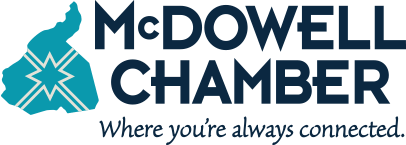Understanding Data Governance: A Key Guide for Small Businesses
Understanding Data Governance: A Key Guide for Small Businesses
Data governance is no longer just a concern for large corporations; it’s a vital practice for small businesses as well. With increasing amounts of data being generated, properly managing and protecting that information is essential for maintaining security, ensuring compliance, and building customer trust. By implementing clear data governance policies, small businesses can safeguard their operations from costly breaches, avoid regulatory penalties, and make more informed decisions that lead to sustainable growth. Understanding what data governance entails and why it matters is the first step to ensuring your business remains competitive and secure.
Build Customer Trust and a Competitive Edge with Data Governance
Implementing data governance in your small business can significantly enhance customer trust by ensuring the security and accuracy of their data. When customers know that their information is being handled responsibly, your business’s credibility and trustworthiness improve, fostering long-term loyalty. Furthermore, this focus on data stewardship not only mitigates potential legal risks but also sets you apart from competitors who may neglect data management. By optimizing data processes, you can leverage accurate data to tailor marketing strategies and make better business decisions, giving you a distinct competitive edge in the market. Overall, effective data governance transforms data into a valuable asset, leading to improved business performance and customer satisfaction.
Select the Best Data Governance Tools
Choosing the appropriate data governance tools is crucial to maintaining data accuracy, compliance, and security. For smaller entities, this might be as basic as integrating data validation features into existing spreadsheets, while larger operations require more advanced solutions. When evaluating these tools, you should consider features like automated data discovery, data lineage tracking, and quality control mechanisms, which can greatly enhance your operational efficiency and decision-making processes. Despite the challenge posed by numerous available options, focusing on tools that offer scalability and regulatory compliance will provide a solid foundation for your data governance strategy.
Safeguard Data for Employees and Customers
Safeguarding sensitive information, whether it belongs to employees or customers, is a critical aspect of maintaining trust and meeting legal requirements. One effective way to ensure data security is by using secure formats for storing important documents. Converting files to PDF format is a practical option, as it preserves the integrity of the data and can easily be encrypted for added protection. Additionally, many online tools offer convenient ways to password-protect your PDF files, adding another layer of security to your most sensitive information. For a reliable tool to help secure your files, click here.
Cut Costs by Streamlining Data Processes
By streamlining your data processes and eliminating redundancies, you can significantly cut down on operational expenses. This involves analyzing current IT systems to identify areas of inefficiency and creating an action plan to address them. For example, implementing a tiered storage system allows you to store less critical data on cheaper media while reserving more expensive options for essential information. This strategy not only optimizes storage costs but also enhances overall system efficiency by reducing the need for repetitive data handling. Regularly measuring the impact of these changes ensures that the cost savings and performance improvements are sustained over time, providing long-term benefits for your business.
Key Data Governance Practices to Adopt
Implementing data governance in small businesses starts with setting specific, achievable goals to ensure steady progress without overwhelming resources. It is crucial to make your metrics count by defining clear, measurable objectives, as this allows you to monitor success and make informed decisions. Consistent and open communication with stakeholders is vital to align data governance efforts with business priorities and gain their support. Additionally, ensure all data processes are robust and frequently reviewed to maintain data quality, security, and compliance. By starting on a small scale and expanding incrementally, you can build an agile data governance framework that evolves with your business’s needs and technological advancements.
Protect Data with Redundancy and Backup Measures
To safeguard your valuable data, implement both data redundancy and backup solutions. By maintaining multiple copies of your data across different storage solutions, such as mirrored virtual machines or RAID systems, you can swiftly recover from hardware failures or other unforeseen events. Furthermore, cloud-based backups add an additional layer of security and accessibility, enabling data recovery even during remote work scenarios. Regularly testing your backup systems and updating encryption protocols ensures that your data remains protected and can be restored promptly. These practices not only minimize the risk of data loss but also ensure business continuity in the face of potential disruptions.
Align Data Management with Industry Regulations
To align your small business with industry regulations, start by identifying relevant legal requirements such as GDPR or CCPA, which can impose substantial fines for non-compliance. Conducting a thorough risk assessment to understand the types of data you handle and potential vulnerabilities is essential. Implementing robust data security measures like encryption and regular audits will safeguard against breaches and unauthorized access. Employee training on data privacy and compliance protocols is also crucial to ensure everyone understands their roles and responsibilities.
Embracing data governance empowers small businesses to harness the true potential of their data, elevating it from mundane bits and bytes to a strategic powerhouse. This transformation fosters a business environment that prioritizes security, efficiency, and customer trust—key ingredients for long-term success. As you embark on your data governance journey, remember that it is an evolving process that grows with your business. Whether you start with improving data accuracy or implementing advanced security measures, each step you take reinforces your commitment to excellence.
Elevate your business potential with the McDowell Chamber of Commerce - your gateway to invaluable resources and thriving local connections!
